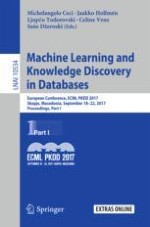2017 | OriginalPaper | Chapter
Learning Łukasiewicz Logic Fragments by Quadratic Programming
Authors : Francesco Giannini, Michelangelo Diligenti, Marco Gori, Marco Maggini
Published in: Machine Learning and Knowledge Discovery in Databases
Publisher: Springer International Publishing
Activate our intelligent search to find suitable subject content or patents.
Select sections of text to find matching patents with Artificial Intelligence. powered by
Select sections of text to find additional relevant content using AI-assisted search. powered by
